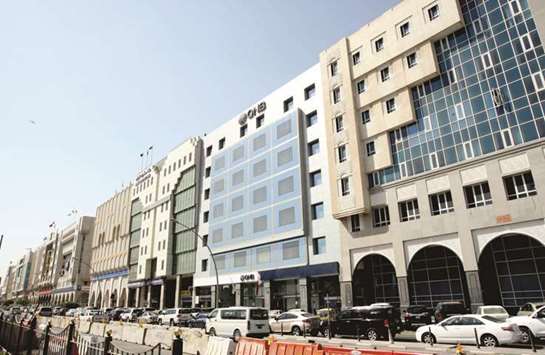Qatar’s initiatives to achieve long-term economic self-sufficiency and sustainability within the private sector will ensure robust and durable long-term growth for the country, QNB has said in an economic commentary.
Last week, the Ministry of Development Planning and Statistics (MDPS) released Qatar’s third-quarter GDP data. Real gross domestic product growth accelerated to 1.9% year over year in Q3, up from 0.3% the previous quarter.
The strong upturn was led by the hydrocarbon sector, which gained 0.2% in Q3 compared to a contraction of 3.1% in Q2. The non-hydrocarbon sector remained broadly stable at 3.6% in the quarter versus 3.7% in Q2.
“Overall, the economy continues to be resilient against the blockade and we expect momentum to pick up in the fourth quarter resulting in annual GDP growth of 2.2% in 2017,” QNB said.
Qatar’s hydrocarbon sector was the primary driver of growth in the third quarter (Q3). The improvement in growth likely reflects higher natural gas output as oil production declined 8.4% from a year ago due to Qatar’s compliance with the Opec production cut agreement. Gas output likely rose due to production normalisation after temporary shutdowns for maintenance in the first half of the year.
Additionally, there have been reported higher sales of liquefied natural gas (LNG) on the spot market to China as the country switches from coal power generation to cleaner gas. Chinese nominal imports from Qatar increased 167.3% in Q3, their fastest rate of growth in over seven years, the overwhelming majority of which is LNG.
Non-hydrocarbon growth was broadly stable and there were encouraging signs about firming underlying strength in the sector. Growth in the manufacturing and finance sectors, the first and third largest sub-sectors, both increased in Q3, QNB noted.
Manufacturing rose 5% in the quarter marking its fastest growth in three years likely due to increased production capacity coming online. The financial sector has rebounded, growing by 5.5% in Q3 compared to 4.8% growth in Q2. The sector was temporarily impacted following the blockade.
The gains in these sectors were offset by some weakness in wholesale and retail trade, real estate, hospitality and information and communication sectors. But overall, growth in the non-hydrocarbon sector remained resilient.
“We project real GDP growth will average 2.2% for the full year in 2017,” QNB said.
Rising public sector credit, the fading impact of the blockade and renewed consumer and business confidence will drive a further acceleration in Q4. Growth in 2018 also looks promising, the QNB report said.
The authorities unveiled the fiscal budget for 2018 last month, outlining higher spending but also stronger revenues resulting in a smaller projected deficit. Spending increases are targeted towards education, health and construction projects in advance of the FIFA 2022 World Cup.
In addition, the government plans to award QR29bn in contracts to the private sector to encourage diversification, a measure taken as part of Qatar’s response to the blockade. The authorities have been proactive by initiating projects in long-term economic self-sufficiency and sustainability within the private sector.
Consequently, QNB said new areas for investment are being opened up in transport, logistics, the production of food and other basic materials. “Overall, we are confident that these initiatives will ensure robust and durable long-term growth for Qatar,” QNB said.

Qatar’s financial sector has rebounded, growing by 5.5% in Q3 compared to 4.8% in Q2. PICTURE: Nasar TK
